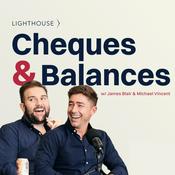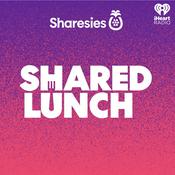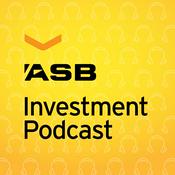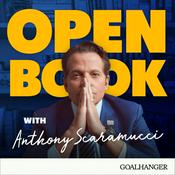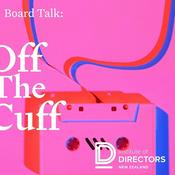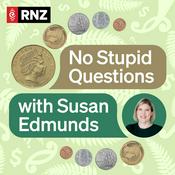108 episodes
Imre Speizer: Differing levels of 'assertiveness' between RBNZ & RBA the reason for big cash rate difference
06/2/2026 | 34 mins.By Gareth Vaughan
The Reserve Bank of Australia's decision to lift its cash rate 25 basis points this week means it's now 160 basis points higher than the Reserve Bank of New Zealand's official cash rate highlighting differing levels of assertiveness between the two central banks, Imre Speizer, Head of New Zealand Strategy at Westpac, says.
The RBS's cash rate is now at 3.85% with the RBNZ's OCR at 2.25%. Speaking in a new episode of the Of Interest podcast, Speizer says it has been 13 or 14 years since there has been such a gap, with the two economies tending "to cycle together most of the time."
"It comes down to a different central bank approach. The RBA has deliberately maintained a fairly dampened approach to tackling either low inflation or high inflation. So when it has needed to hike or cut, it has done [so] in a very cautious and drawn out manner. And by doing so it hasn't had to flip around as much as the likes of some other countries," says Speizer.
"The central bank of New Zealand has been pretty much an activist in terms of tackling inflation. So when inflation was high in the most recent cycle it went fairly hard and hiked rates a lot to bring it back down again, and that then amongst other things did help to engineer a brief recession."
"It paid a cost to do so but it got inflation under control. Now we're basically coming out of that era and [economic] growth is starting to pick up. And so the Reserve Bank [of NZ] is now faced with the task of thinking well at what point do we need to start thinking about pushing rates up to prevent inflation from running away?"
"I guess it just means the assertiveness of the relative central banks is probably explained [in] why we've ended up with such big differences between New Zealand interest rates and say the Australian interest rate. In time that will rectify itself and will get back to something that looks a bit more normal, I.E. Kiwi rates a little bit higher than Aussie rates. But I think it's going to be some way down the track," Speizer says.
He says lots of people are asking how the cash rate differential between New Zealand and Australia might play out with mortgage rates.
"There shouldn’t be any direct impact if the cause of Australian rate rises is unique to Australia. But much of the time, there is a common global factor at play, so New Zealand rates do follow Australian and US term rates," Speizer says answering a follow-up question to the podcast interview.
"Also, if the strong Australian economy is seen as eventually benefitting New Zealand’s economy, New Zealand term rates could rationally follow Australian rates higher in dampened fashion."
In the podcast audio he also speaks about the direction of swap rates and what it means for mortgage rates, what the yield curve's suggesting at the moment, the outlook for NZ government bonds, the impact the volatility of US President Donald Trump's administration has on the US dollar and financial markets more broadly, incoming Federal Reserve Governor Kevin Warsh, the impact of US government shutdowns on economic data availability, geopolitics and more.Steve Symon: Following the money while playing whack-a-mole against the large commercial enterprises of organised crime
30/1/2026 | 39 mins.By Gareth Vaughan
A new all-of-government strategy to tackle organised crime aims to make New Zealand the hardest place in the world for organised criminal groups to do business and following the money is key to the fight, says the Chairman of the Ministerial Advisory Group on Transnational, Serious and Organised Crime.
One of the Ministerial Advisory Group's recommendations is to broaden the legal definition of money laundering, with barrister Steve Symon, who chaired the Advisory Group, saying money is the key driver.
"The reason they operate in New Zealand is money. I'm not saying that we will cure the problem of organised crime globally, but we can make New Zealand the hardest place for organised crime to operate, such that they'll see other markets as more lucrative," Symon says in a new episode of interest.co.nz's Of Interest podcast.
"We're effectively saying 'organised crime don't operate here, go elsewhere to do that.' We have to make it as challenging as possible for organised crime to profit from it, to use money."
"The money laundering regime is a key aspect of that. Obviously there has to be a way for organised crime to take the money that they get from crime and benefit from it. Transfer it, launder it... into a way that they can use it," says Symon.
"The challenges that we have in relation to the current money laundering regime [are] probably best demonstrated by the small number of money laundering cases that go through our courts. We know that the drug trade is driven by organised crime. And...theoretically, for every drug case you should have a money laundering case as well."
Symon says fortunately most New Zealanders won't be aware of the problem of organised crime, but they will see the symptoms of it.
"The methamphetamine use, particularly in our rural communities, [which] is decimating some of our rural communities. The advent of the fraud that is spreading. One in 10 New Zealanders are the victim of fraud and that number is escalating."
"And there'll be touch points that the public are not aware of, where they are interacting with people who are exploited migrants who have been exploited by organised crime," says Symon.
"We will see new and emerging threats through organised crime, such as a black market in tobacco which has been, escalating in New Zealand. And these things are growing and becoming more complex. What we're also seeing is organised crime working in more nefarious ways. So working on corrupting individuals, corrupting New Zealanders going about doing their work to try and maximise the return they can get from their crime."
"Organised crime is working more and more like large commercial enterprises. So when you think of large companies and how they spend their energy on facilitating and maximising the return that they can get for their investors, it's the same logic you should apply to organised crime," says Symon.
In the podcast audiohe also talks about the challenge of cash "the primary currency of organised crime" and the recommendation to stop cash payments in certain industries, why the Advisory Group recommends a dedicated Transnational, Serious and Organised Crime Minister, funding the fight against organised crime, why more is needed from Inland Revenue, working across government agencies, the role of the private sector, cryptocurrency, the need for international cooperation and more.
Just before Christmas Associate Police Minister Casey Costello unveiled a new all-of-government strategy to tackle organised crime. Costello released this strategy document, and this action plan. Details on the Ministerial Advisory Group and all its reports can be found here.
*You can find all episodes of the Of Interest podcast here.Anna Breman: The new RBNZ Governor on inflation, being told off by Winston Peters & more
23/1/2026 | 23 mins.By Gareth Vaughan
Governor Anna Breman has implied the Reserve Bank's Monetary Policy Committee will increase the Official Cash Rate (OCR) in the run-up to November's election if members believe this is what is required.
"We are statutory independent. We are an independent central bank, like you point out, and we will do what is best for the New Zealand economy and to reach our inflation target," Breman told interest.co.nz in a new episode of the Of Interest podcast.
She was asked if the Reserve Bank believes increasing the OCR is necessary, she would be comfortable doing so in the run up to November's election.
Breman was speaking on Friday, after the release of Statistics NZ's December quarter Consumers Price Index (CPI) showed annual inflation at 3.1%, above the Reserve Bank's 1% to 3% target range.
"We are carefully looking through all the data. It's clear that there are some items in there that typically are very volatile. They can change a lot between different quarters. But of course 3.1% is high and it means that inflation that's been hurting households for many years is still above where we want it to be, but the outlook is still favorable in terms of inflation going forward. So it's also important to stress that we will focus on getting inflation back in the target band and towards the midpoint of the target band," Breman said.
The Reserve Bank reviews the OCR for the first time this year on February 18.
In a note following the CPI release BNZ Head of Research Stephen Toplis said financial markets had almost fully priced in a first OCR increase for the Reserve Bank's September 2 Monetary Policy Statement. And BNZ's economists have brought forward their expectations for a first OCR hike to September 2 from February 2027.
"One thing that needs to be taken into consideration is the General Election on November 7. The Reserve Bank is operationally independent so it can broadly do what it wants when it wants, but central banks are not keen to become embroiled in election campaigns if it can be avoided," said Toplis.
"In our opinion, this means the 28 October Monetary Policy Review would be far from optimal for a first rate hike. Moreover, it’s always easier to tell the full story with a complete Monetary Policy Statement when a hiking cycle, or cutting, begins."
Breman said she doesn't comment directly on market pricing. The OCR is currently at 2.25%, having been reduced from 5.50% since July 2024.
In the podcast audioBreman speaks further about inflation including the challenges facing households, whether she expects help from government with the inflation fight, limits to Reserve Bank monetary policy, her recent support of US Federal Reserve Chairman Jerome Powell and the response from Foreign Minister Winston Peters and Finance Minister Nicola Willis, risks around the Fed becoming less independent when President Donald Trump appoints a new Chairman, what climate change means for the Reserve Bank, her thoughts on a potential central bank digital currency, and more.
*You can find all episodes of the Of Interest podcast here.David Mahon: China, a country 'full of DeepSeeks,' now sees NZ as 'a country of diplomatic infidelity'
19/2/2025 | 37 mins.Prime Minister Christopher Luxon visiting India before China could be seen as an insult in China, Beijing-based New Zealander David Mahon says. But he says China's recently announced strategic partnership with the Cook Islands, through which NZ was kept in the dark, shouldn't be viewed as insult to, or provocation of, NZ.
Mahon, who is Managing Director of Mahon China Investment Management and has lived in China since 1984, spoke to interest.co.nz in a new episode of the Of Interest podcast.
Luxon, who before the 2023 election said achieving a free trade agreement with India would be a major strategic priority for a National government, is set to visit India next month. He's yet to visit China as Prime Minister, but is expected to do so this year.
"If the Prime Minister had gone to China and conferred upon it as a great power the respect it deserved in the last year or so of his tenure, it'd be fine. But it's almost a statement of a diplomatic insult not going to China before going to India," Mahon said.
He said potentially the prospects for NZ products in China over the next two to three years are very good, with China retaining a great need for protein, wanting to buy seafood, and NZ logs still selling reasonably well.
However, Mahon suggested after a good relationship with China for many years, highlighted by the 2008 Free Trade Agreement (FTA), NZ is now seen as "a country of diplomatic infidelity."
"And for most of my life, we've been the opposite of that. Under Helen Clark, John Key, Jim Bolger, we were the country that was respected. Now people are scratching their heads and saying, what's wrong with New Zealand? It seems to have lost its sincerity, its sense of loyalty."
The recent signing of a China-Cook Islands comprehensive strategic partnership, which the NZ Government was kept in the dark over, shouldn't be viewed by NZ as an insult or provocation from China, Mahon said. The Cook Islands is a self-governing state in ‘free association’ with NZ with its citizens having NZ passports.
"...what China is determined to do is to make sure that it retains this relationship with New Zealand, although New Zealand is struggling in many ways to hold up its end."
"We shouldn't be too peevish that they [the Cook Islands] want to do a deal with someone with more money than us," Mahon said.
"In the end, China is going to invest throughout the Pacific, where it can. Part of it is that it wants to express its influence."
The Cook Islands-China agreement reportedly includes plans for co-operation on seabed mining, the establishment of diplomatic missions and preferential treatment in regional and multi-lateral forums, but excludes security ties.
An attraction of the Cook Islands deal for China will "definitely" be minerals, Mahon said.
"If you go back to the technological revolution, which is really what's occurring in Chinese manufacturing, they need these minerals very much," said Mahon. "China is actually very poor in resources."
'China is full of Deep Seeks'
Meanwhile, Mahon said recent surprise around Chinese artificial intelligence (AI) company Deep Seek highlights westerners taking their eye off China and its burgeoning technology sector.
"China's full of Deep Seeks. There are companies in China, the names of which we just have never heard of, that are about to change major sectors that influence our lives."
So Deep Seek is like the first, I don't want to say shot across the bows because it makes a sort of military metaphor, but it is a flare, a signal."
"This is what China's been focused on in the last 10 years. Getting away from making nylon socks and teddy bears and cheap stuff and making really good technology, really sophisticated technology. And so this is what's going to come out of China now in waves and make all our lives cheaper in terms of buying stuff that's important to us," said Mahon.
"And it's going to be a major challenge to the major tech companies of the West, creating the kind of competition that markets run on. Innovation's driven by it. So this should be perceived as a positive thing."
In the podcast audio Mahon talks about these issues in more detail, plus this week's meeting between President Xi Jinping and Chinese business leaders, the "shameful scandal" of NZ immigration and visas "violating the spirit" of the FTA, China's relationship with the United States in the time of Donald Trump's second presidency, tariffs, trade war, and the "ghastly concept" of potential military conflict between China and the US, possibly over Taiwan.
"China doesn't want a war. China doesn't want to invade Taiwan. If China were to invade Taiwan, it would be out of
the global financial system within hours. China within six months would face a massive economic crisis," he said.
*You can find all episodes of the Of Interest podcast here.- Stats NZ’s final data release for the year revealed the economy has been shrinking at its fastest rate in three decades. While this may not be a very Merry Christmas, there is still hope for a Happy New Year.
Treasury, the Reserve Bank, and most economists expect growth to resume in 2025 as interest rates fall. Consumer spending should pick back up and cheaper credit should make business investments more worthwhile.
But while private New Zealanders open up their wallets, the Government will continue to tighten its belt. Core Crown expenses are predicted to fall from almost 34% of GDP in 2025 to 31.5% by the end of the decade.
This would be enough to balance the books—if you ignore annual losses at the supposedly self-funded Accident Compensation Corporation—and halt net core Crown debt at 45%.
But Finance Minister Nicola Willis told Interest.co.nz this wasn’t her top priority.
“Our view is you can never ignore sensible fiscal policy, and it's irresponsible to indebt future generations to an extent that they won't be able to have the services that we have today,” she said in an interview.
“But at the same time, you also need to make sure that you're maintaining today's services, that you're keeping the foundations for productivity, and that you are ensuring that your measures make sense—not just in the short term for coloring the books and making them look pretty—but will actually generate a sustainable basis for growth in the medium term”.
Many left-leaning critics of the Finance Minster would like to see greater Government investment to support the growth forecasts next year. They worry a withdrawal in spending will hamstring the recovery and leave the economy less productive in the future.
It may surprise you to hear that Willis agrees with them. She says it is “factually incorrect” to accuse her of austerity, as the Coalition’s fiscal policies are still stimulating demand.
“We have a government that is actually continuing to increase its overall levels of spending, both in absolute terms, but also as a proportion of the economy. And actually, the fiscal impulse will be positive.”
“But the point that we are making is this does need to unwind over time, and so we've set out a path of gradual fiscal consolidation, which we think is the responsible way to go”.
She says policies which deregulate the economy, open New Zealand up to more foreign investment, and crack down on uncompetitive industries will be more important to future growth than fiscal stimulus.
Banking is one of these uncompetitive sectors in which she wants reform. She's already told Kiwibank to raise $500 million and the Reserve Bank to put more weight on competition when setting regulation policies, and is more than willing to go further.
“When I read through the Commerce Commission report on our banking sector, it couldn't have been any clearer to me that we have a major problem,” she said.
“I have put the banks on notice and made it clear that if they want to do more of their nice talk about how they're going to be really good … that won't wash with us. They need to be acting or we will take further action, and there are a lot of options for what we can do there”.
She’s open to charging banks a special levy or tax, like in the United Kingdom and Australia, which recognises they benefit from an implied Crown guarantee and earn very high risk-adjusted returns as a result. Big banks beware!
More Business podcasts
Trending Business podcasts
About Of Interest
Longform interviews with key opinion makers about the New Zealand economy
Podcast websiteListen to Of Interest, The Property Academy Podcast and many other podcasts from around the world with the radio.net app

Get the free radio.net app
- Stations and podcasts to bookmark
- Stream via Wi-Fi or Bluetooth
- Supports Carplay & Android Auto
- Many other app features
Get the free radio.net app
- Stations and podcasts to bookmark
- Stream via Wi-Fi or Bluetooth
- Supports Carplay & Android Auto
- Many other app features


Of Interest
Scan code,
download the app,
start listening.
download the app,
start listening.







